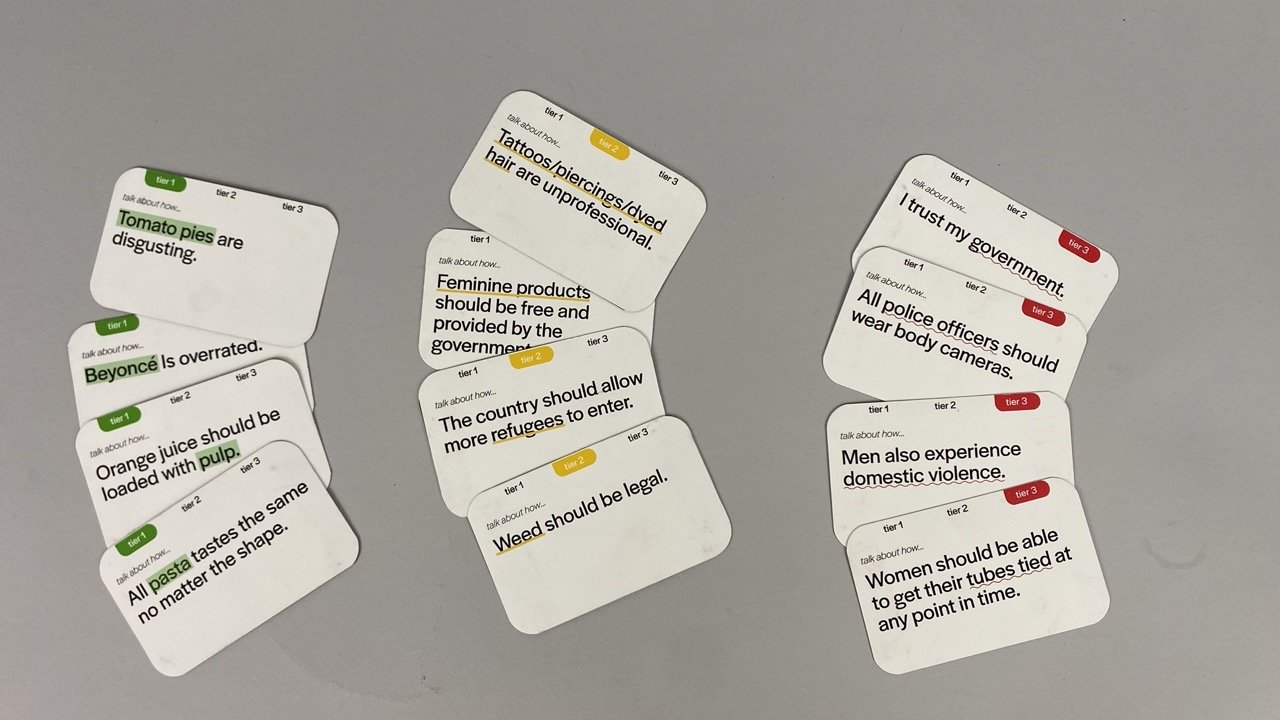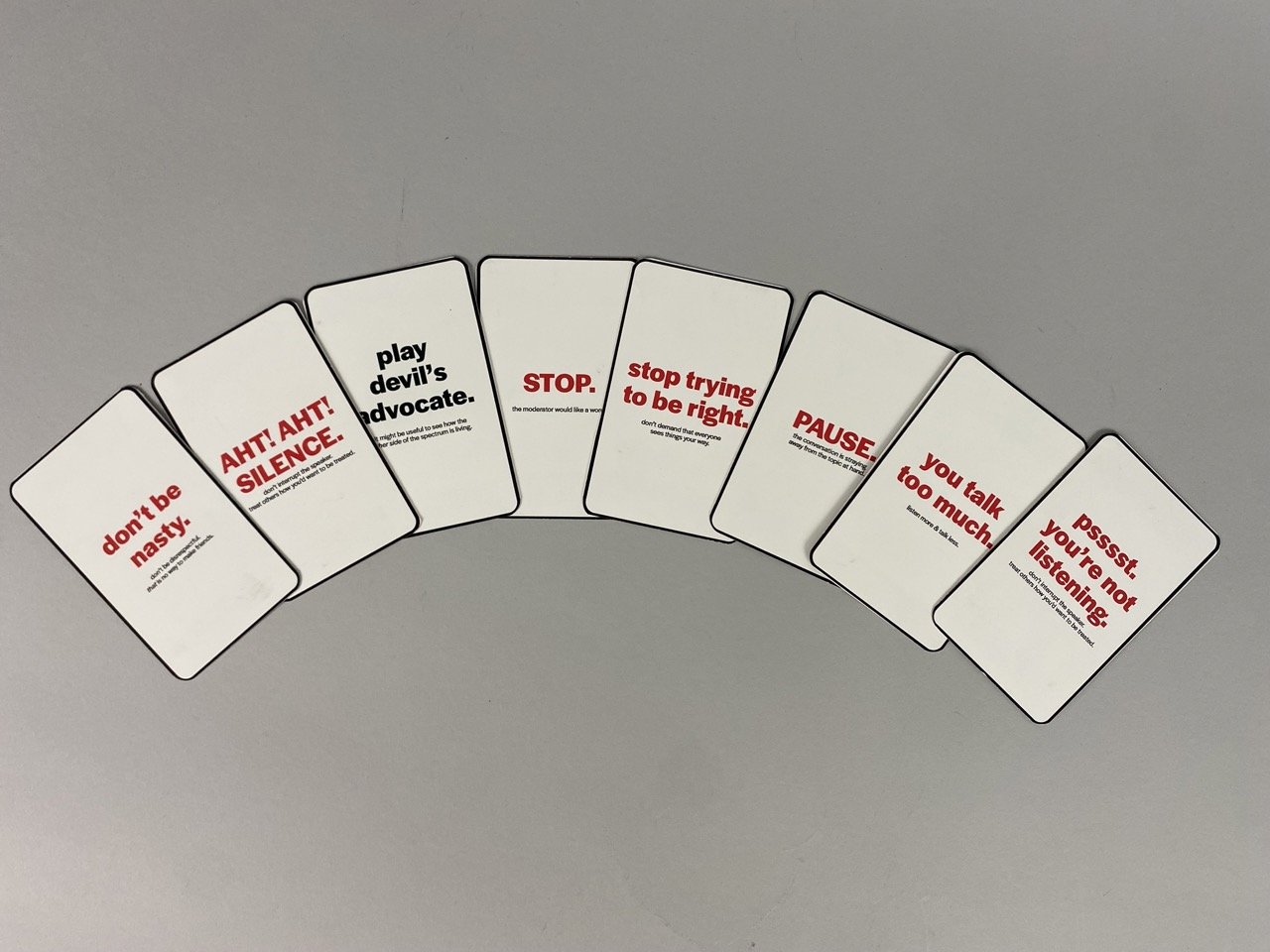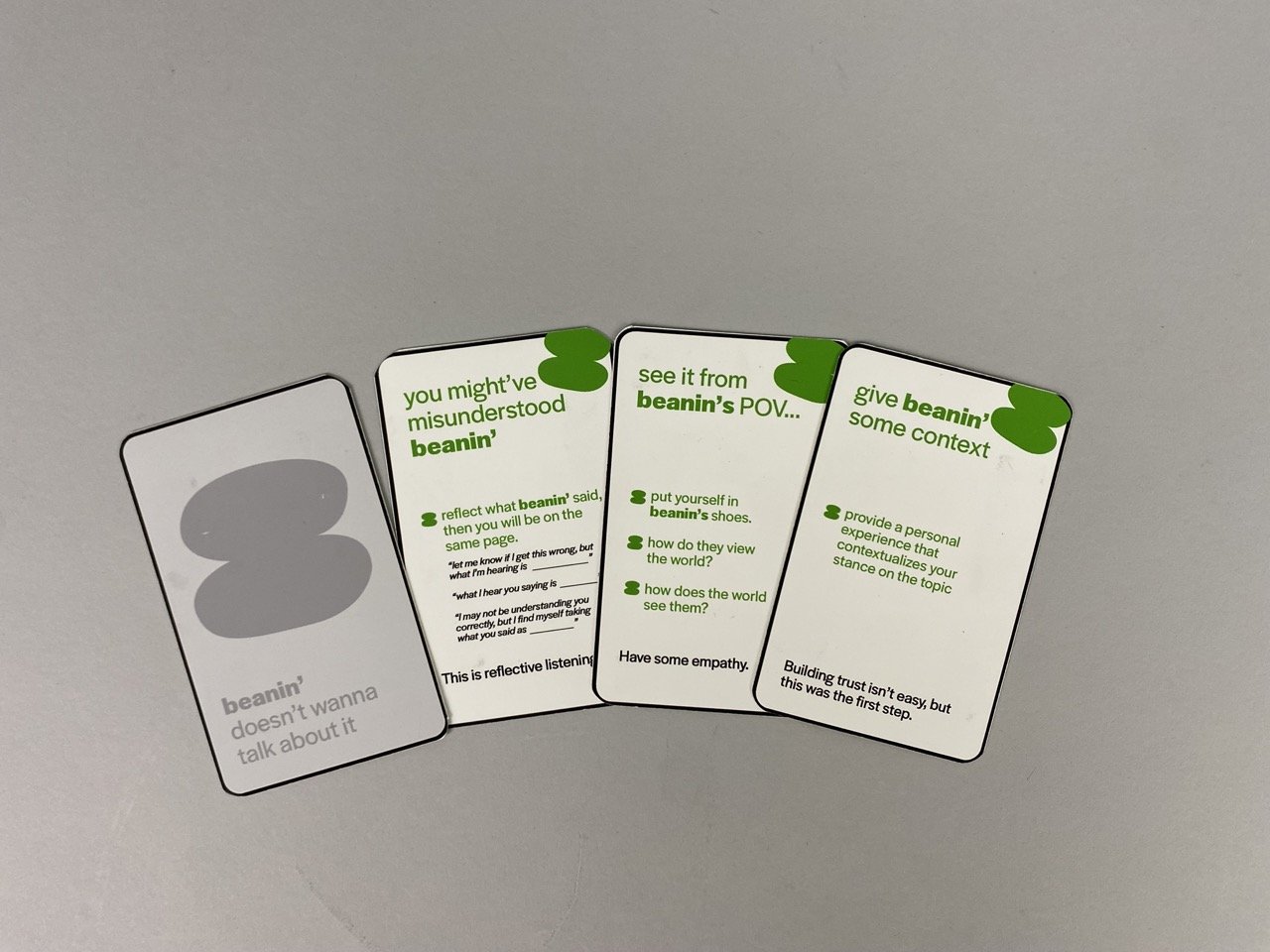I Don’t Wanna Talk About It
is a game that aims to bring avoidant topics of opposing opinions together through the juxtaposition of serious conversations and lighthearted gameplay.
In my deep passion for conducting progressive conversations, I created a game that visualizes and humanizes polarizing points of view to those who may disagree. This game creates a safe space for conflict to be resolved by assigning silly gameplay characters and a randomized moderator every round. This game provides moments of timed reflection, vulnerability, and introspection among relationships.
This is how we talk about hard things with the people we love:
We pull this game out, choose a character, choose a topic tier at random if you’re feeling brave.
Recommended to do the tiers 1, then 2, then finally tier 3.
SKILLS USED:
— Secondary research
— User-testing
— Pretotyping
— Experience design
— SWOT analysis
— Game design
— Concept creation
— Typography
— Systems design
— Content management
— Content curation
— Logo design
Buckle up. I’m about to explain important things in a bite-sized portion.
Here, I will be explaining the game by ‘dealing’ you the cards.
Choose a tier 1 or a random topic card.
Talk about it.
Below, you’ll find three different decks of cards.
Tier 1 difficulty (to the left, in the green) — Easy discussions, should be a breeze.
Tier 2 difficulty (in the middle, mostly yellow) — Seedy conversations, difficult discussions at bay.
Tier 3 difficulty (to the right, in the red) — If you brought these conversations up at Thanksgiving dinners, you’re dead meat. You might not want to hear your friends & family’s opinions
If players don’t know each other well: Use the tiered topics in the ascending numeric order (tier 1, then tier 2, finally tier 3).
If players KNOW each other: Randomize the tiered topics to spice up the different intensites in conversations.
The moderator is the player who was randomly assigned the responsibilities. There are 7 cards in this deck. The rules the moderator are enforcing:
— Players are respectful
— Players are following the rules of the game.
— Players are firmly using the character names to refer to one another and themselves.
— Time is kept accordingly.
— Keeping the topic on task.
One player is moderating each conversation — chosen randomly.
Without speaking and reacting, each player places their character that coordinates with where they stand on the topic, onto the game board. Based on the results of the board game, the moderator determines if the topic allows for progressive conversation.
The moderator stays alert to recognize negative emotions stemming from the conversation. The moderator then points out the most standout phrase/word that is on the card at hand. They are to remind players that what they’re getting upset about is not worth jeopardizing a friendship over.















